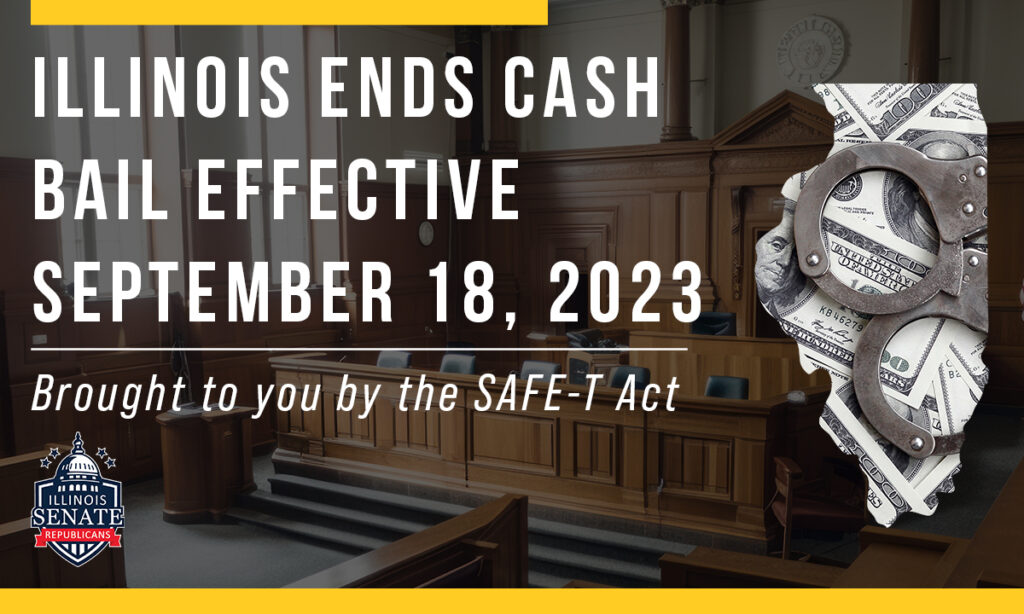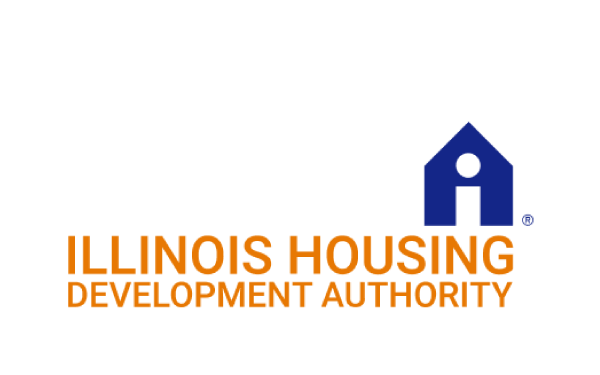SPRINGFIELD – Now that court battles have come to an end, the “no cash bail” provisions of the SAFE-T Act will take effect statewide later this month.
In other news, the controversial free healthcare program for undocumented immigrants is once again making headlines following a notice sent to hospitals about the program.
Meanwhile, the highly successful Invest in Kids program is set to expire at the end of the year, but Senate Republicans are urging the Legislature to act during the upcoming fall Veto Session to save the program.
And homeowners financially impacted by the COVID-19 pandemic have less than two months to apply to receive assistance through a federal grant program.
SAFE-T Act update: ‘No cash bail’ set to take effect Sept. 18

Since the final day of the 2021 lame-duck session, the SAFE-T Act has been highly criticized among the public, law enforcement, and state’s attorneys. Now, 2.5 years later after court battles, the “no cash bail” provisions found within the law are set to take effect statewide Sept. 18.
Under the law, Illinois will replace its current cash bail system with a new set of strict standards that prosecutors must meet to be able to detain an individual pre-trial.
State Senator Dave Syverson (R-Cherry Valley) opposed the SAFE-T Act when it passed the General Assembly and says the law fails to address the financial impacts that the elimination of bail will have on counties and victim services. He also says that the law fails to provide judges enough discretion to be able to hold certain offenders in jail pre-trial, leading to a heightened risk to public safety.
HFS halts co-pay requirement on state-funded undocumented immigrant healthcare

On Sept. 5, the Governor’s Administration sent a notice to hospitals regarding the Health Benefits for Immigrant Adults and Health Benefits for Immigrant Seniors Programs, informing them not to collect co-pays from patients enrolled in the program. The program provides top-notch healthcare to undocumented immigrants ages 42 and older in Illinois.
Back in June, Healthcare and Family Services filed emergency administrative rules to set maximum co-pay amounts for certain services in an attempt to rein in state costs of the ballooning program, which was expected to cost $1.1 billion this fiscal year. Previously, undocumented immigrants in the program were allowed free services without co-pays. However, even though the emergency rules went into effect immediately, HFS is now informing providers that the cost-sharing portion of the rules were never meant to be implemented immediately and is on hold until further notice.
In this fiscal year’s budget, $550 million was allocated to the program despite projections showing costs over $1 billion. To attempt to lower these costs, the Pritzker Administration filed a variety of new rules, but has failed to provide an updated financial outlook of the program.
Given the recent pushback by many in the Governor’s own party over his “cost-saving measures” and the lack of transparency, Senator Syverson says he isn’t confident that the program will stay within the $550 million allocated to the program. He adds that it is likely just a matter of time before the Governor and the Majority Party come back to the Legislature asking for more money.
Scholarships for low-income students in jeopardy

A program that provides scholarships to low-income students is in jeopardy as it is set to expire at the end of the year if the Legislature fails to act during the upcoming fall Veto Session.
The Invest in Kids Scholarship Fund, strongly supported by Senator Syverson, helps underserved students improve their chances of academic success by offering private-dollar scholarships for them to attend a different school. Invest in Kids offers a 75% state income tax credit to individuals and businesses that contribute to the Fund. Scholarships are provided to families that meet certain academic and income requirements.
Since its inception in 2018 as part of the negotiated school funding reform, the program has provided 40,000 scholarships to K-12 students.
The looming fate of the program comes as just this week, news reports have called attention to hypocritical comments made by the head of the Chicago Teachers Union (CTU), who has been a staunch opponent of Invest in Kids. In a report by WBEZ, the CTU President confirmed that one of her children attends a private high school despite her many comments criticizing these schools.
Illinois homeowner grant program set to expire

Illinois homeowners impacted by the COVID-19 pandemic seeking financial mortgage assistance have until Oct. 31 to apply for a grant through the Illinois Homeowner Assistance Fund (ILHAF).
ILHAF is a federally funded program dedicated to assisting homeowners at risk of default, foreclosure, or displacement because of financial hardships caused by the COVID-19 pandemic.
ILHAF was initially launched in April 2022 and has provided more than $246 million to help nearly 14,000 homeowners avoid foreclosure while regaining their financial stability. ILHAF supports qualified homeowners with grants of up to $60,000 for past-due mortgage payments, property taxes, property insurance, and homeowner and/or condo association fees. The average grant is $17,988 per household. Socially-disadvantaged areas in Illinois have received more than 69 percent of ILHAF funds.
Applications must be submitted before 11:59 p.m. on Oct. 31 to be reviewed for eligibility. A submitted application does not guarantee approval.
To qualify for a grant, Illinois homeowners must meet the following criteria:
- Have a household income less than 150% of the Area Median Income.
- Own and occupy their property as their primary residence.
- Are past due on their mortgage, property tax payments, or homeowner association dues.
- Have experienced a financial hardship directly related to COVID-19 that began, continued, or worsened after Jan. 21, 2020.
Eligible Illinois homeowners can apply online at https://www.illinoishousinghelp.org/.

